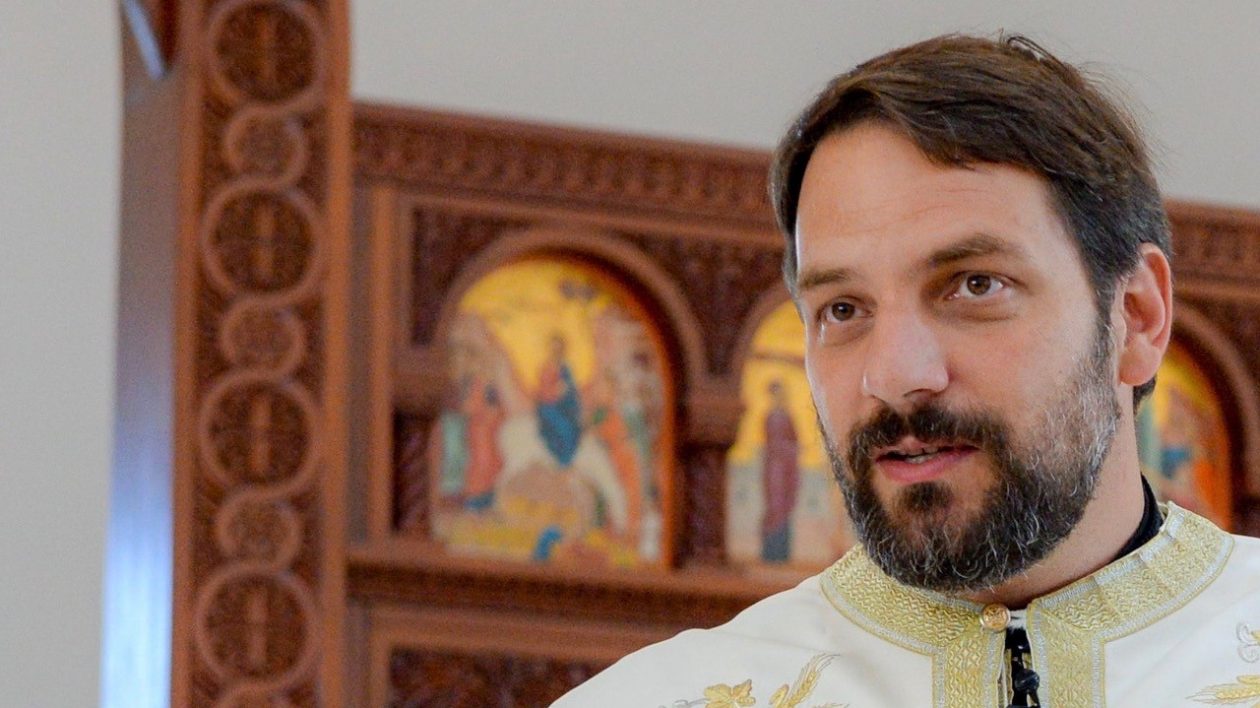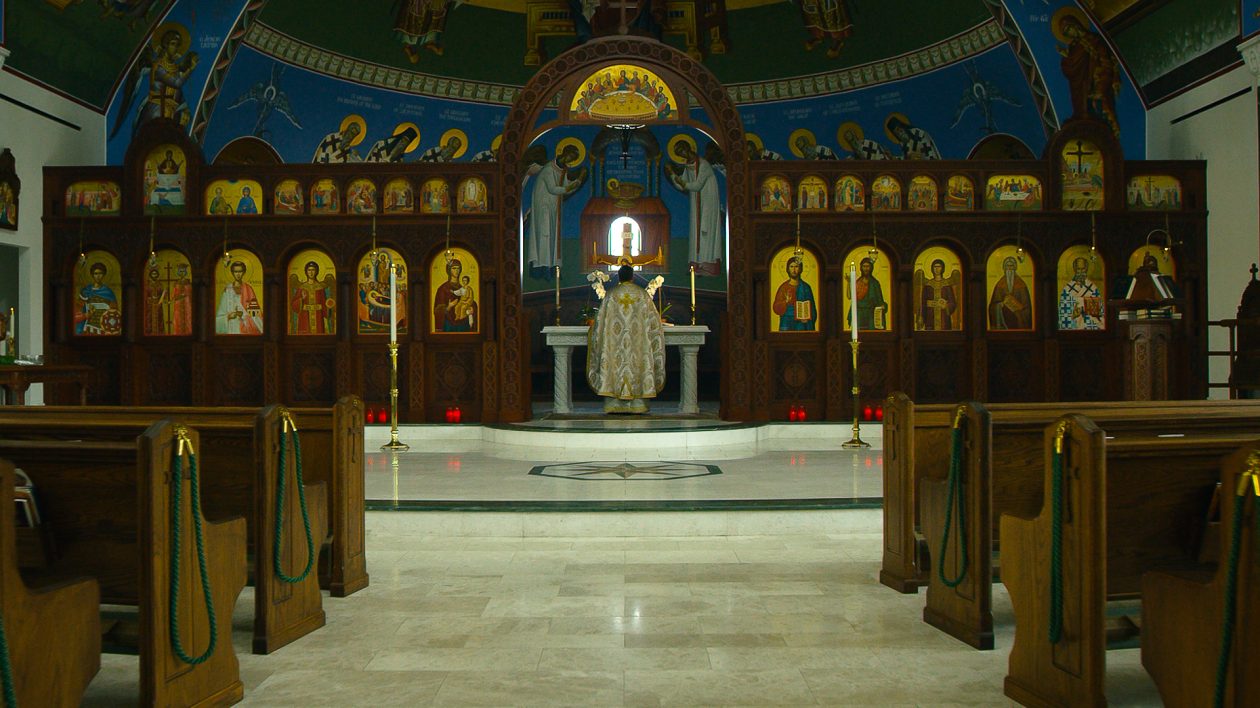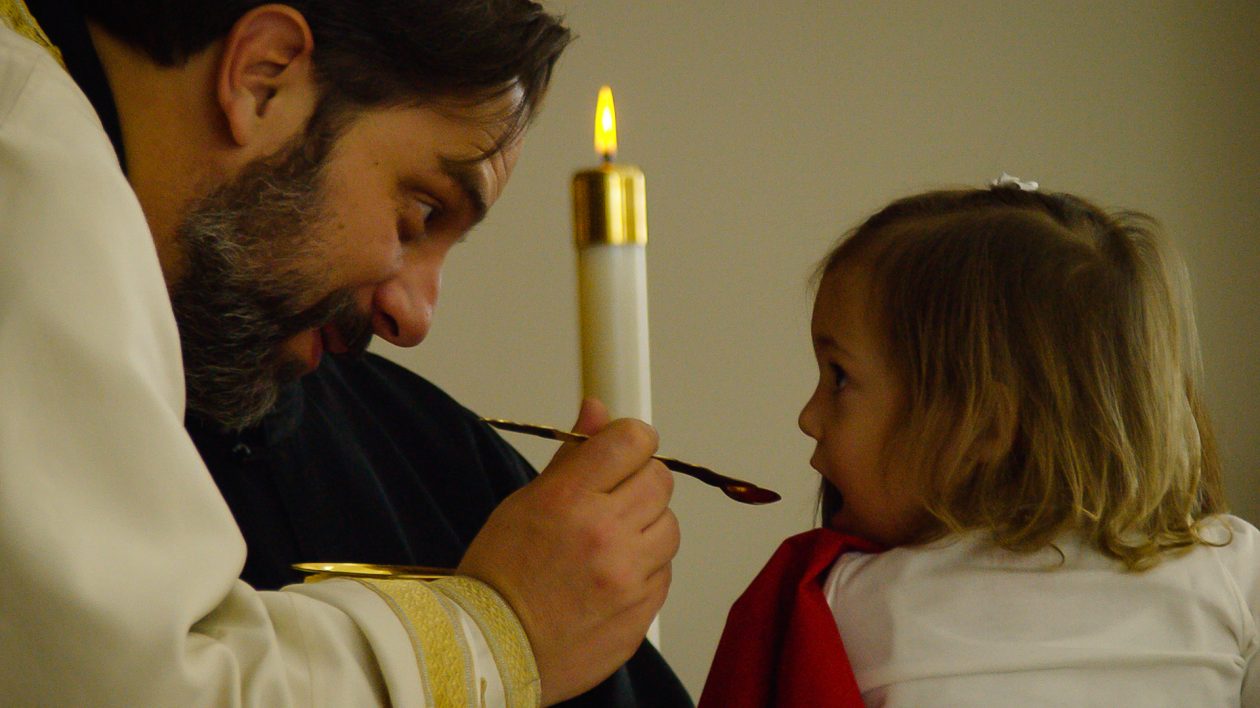A guest blog by Father Constantine Lazarakis, Dormition of the Virgin Mary Greek Orthodox Church of the Hamptons.
Upon reflecting why I thought it was important for our Church to collaborate with The Nature Conservancy on the production of the film Holy Water, I have go to back a long time to a place far from Long Island.
I grew up in Utah. Our neighborhood was nestled in the foothills of the Wasatch Front of the Rocky Mountains. The Wasatch Mountains tower over the Salt Lake valley, and cold, crystal clear rivers and creeks tumble down the canyons. The sun glints on granite faces of the mountainsides.
Cool winds sweep from the canyons, rustling the leaves of the trees. So, even though my family wasn’t particularly “outdoorsy” or particularly conscious of environmental issues or conservancy practices, we grew up in touch with the earth, spending lots of time outdoors, on the lakes and near the rivers. The profound beauty of the natural environment figured enormously in my intellectual, emotional, physical, and spiritual formation.
As an Orthodox Christian in a fairly pious household, I was also a religious minority in a very religious town. There was a lot of pressure to leave my faith, to change religions, or to abandon religion altogether.
But by my early teens, I had come to firmly believe that the profound love and inextinguishable light of the Gospel, particularly as it is understood and lived out in Orthodox Christianity, was something I needed as the center of my life, and something I wanted to share with others, as my mother and so many in my Church community had shared with me.

So, I learned early that if I was going to be understood by friends and neighbors and stay true to my Faith, I was going to have to be able to articulate what my Church was about and why it was important to me, even if those friends and neighbors had no frame of reference for what I was talking about.
In high school and college, I began to understand on a deeper level how severe the environmental crisis was. As we learned about the earth’s rising temperatures, the devastation of the rainforests, the increasing threats to wildlife, and how so much of the problem was (and is) inescapably linked to the technology and infrastructure that is completely integral to contemporary human civilization, I was not only frightened for my future, my future children, and the future of humanity, but I was also angered and offended at our disregard for the Creator of the mountains, creeks, rivers and lakes which had nurtured me.
You see, for me, the enormous beauty, precarious balance, infinite intricacy and limitless diversity of the natural world appeared to be irrefutable evidence of God’s creative power, for His outpouring of energy, of his profound Love. It seemed obvious to me that if our mode of existence and use of His resources were destructive to the world He created, then we must be grossly out of step with His will.
As my understanding of the environmental crisis continued to grow, I was often shocked and frustrated to find that many of the people working the hardest to understand and remedy the environmental crisis, did not see how faith fit into the picture, and even sometimes held religious communities in contempt.
I was shocked even more intensely and frustrated more deeply when I encountered fellow believers who couldn’t see the connection between fidelity to God and care for the earth, or who were in denial about the crisis altogether.
Even occasionally, I would encounter those who felt that because, according their reading of Scripture, God had entrusted the earth and its inhabitants to humanity, that is was our right to exploit the natural environment without regard for sustainability.

I believed and longed for others to understand two things: first, that the environmental crisis is a spiritual crisis. Its roots are in our insatiable appetite for more, and can only be remedied when we find peace within ourselves. A peace that can only be found in God. And therefore, faith in God must play a primary role in the solutions we seek for the environmental crisis. Secondly, that people of faith must embrace an ascetic and stewardship-based view of the natural environment. We cannot see the earth as something that God gave to us to use up and throw away, but rather, we must view it as God’s earth, handed to us in sacred trust, meant to be cared for and offered back to Him.
In 1991, Ecumenical Patriarch Bartholomew was installed to the throne of the Church of Constantinople and became the global leader of the world’s Orthodox Christians. Among Patriarch Bartholomew’s top priorities, is addressing the environmental crisis as a spiritual problem, and working to engage scientists, political leaders and the religious community in changing our thinking about the natural environment and creating policies that protect the natural environment.
Patriarch Bartholomew has designated September 1st (the Ecclesiastical New Year) the annual day of prayer for the natural environment. He has held several symposia for religious leaders, policy makers and scientists regarding water conservation.
He has advocated for conservation and written extensively on the deep connection between Christian spirituality and conservation. He wrote, “To commit a crime against the natural world is a sin. For human beings to cause species to become extinct and to destroy the biological diversity of God’s creation; for human beings to degrade the integrity of the earth by causing changes in its climate, by stripping the earth of its natural forests, or by destroying its wetlands; for human beings to injure other human beings with disease by contaminating the earth’s waters, its land, its air, and its life, with poisonous substances – all of these are sins.”

Today, I live and serve in Southampton, and my three children experience the waters and beaches of the Atlantic in much the same way I experienced Rockies growing up. When Carl LoBue and Nancy Kelley of the Long Island Chapter of The Nature Conservancy graciously took the time to educate us at the Church about the root cause of many of the water issues we suffer here on Long Island, we were energized to be part of the solution.
The algae blooms, fish kills, and diminishing quality of drinking water deeply concern us, and we know that each and every one of us can and must take steps to use our water in way that is sustainable, and for Orthodox Christians, that means using our water in a way that recognizes water as a gift from God, as a sacred trust.
Each year at Epiphany, Orthodox Christians bless the water, and then sprinkle that Holy Water throughout the Church, in their homes, on their cars, everywhere. It is with this water that we baptize our children. It is this water that we drink with prayers for health and wellbeing. It is a sacramental experience of water, and experience by which God reveals himself in the water.
Carl and I thought, “How wonderful would it be if people could expand that sacramental view of water beyond the walls of the Church, to include the waters of the Atlantic, the waters of Sound, the Cut at Flying Point.”
Because if people of faith can expand their sacramental experience of the water beyond the date of Epiphany and beyond the walls of the Church, if people can see all water as sacred, then perhaps we will be more careful with what we seep into our waters, more willing to invest in restoring our waters and keeping them clean. And that, I believe, will make life on Long Island better for my kids and neighbors, and will bring us all a step closer to our Creator.



Beautiful. Thank you.
A good reminder that we are the stewards!